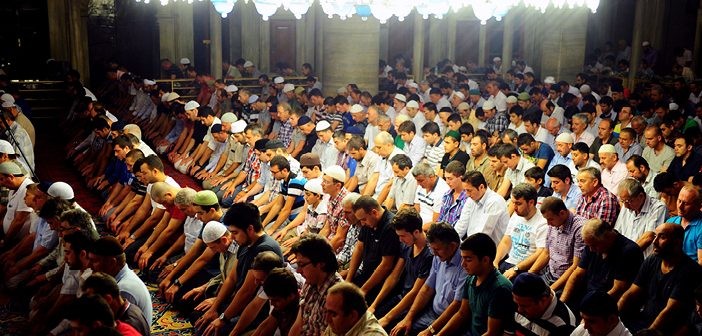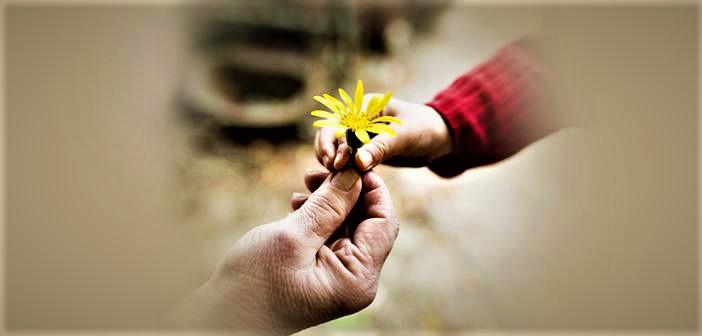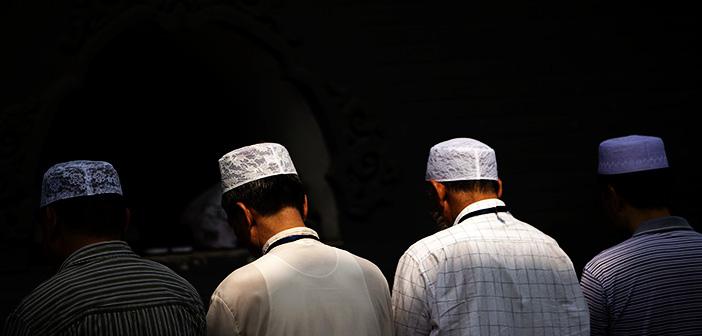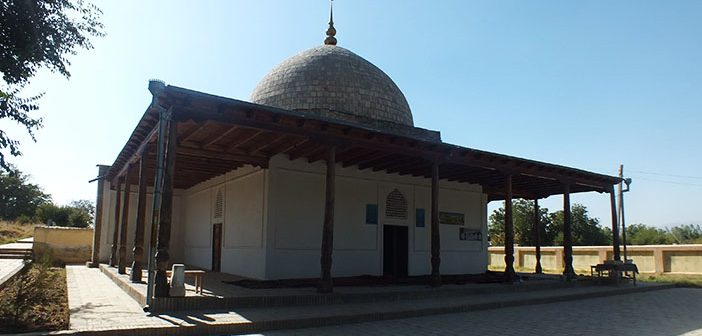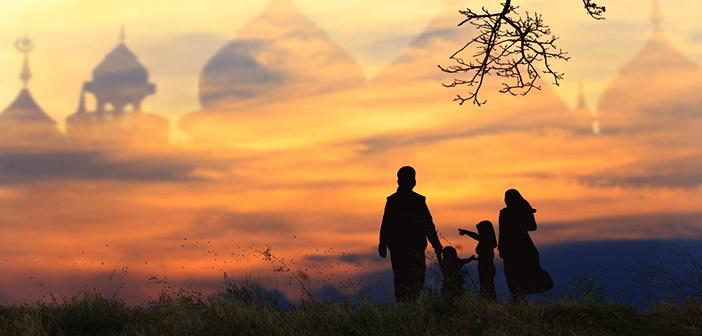
Dhikrullah and Muraqaba
What are Dhikrullah and Muraqaba? What do Dhikrullah and Muraqaba mean? Dhikrullah Quran and muraqaba in islam....
‘…Now surely by Allah’s remembrance are the hearts set at rest.’ (ar-Rad, 28)
It is said that insan, the Arabic word for ‘man’, has as its origin the word nisyan, forgetfulness. Nisyan is the stark opposite of dhikr, or remembrance; and signifies one of the greatest weaknesses of man. This has colloquially been expressed with the expression “Man’s memory is afflicted with forgetfulness” (Hâfıza-yı beşer nisyân ile mâlüldür). The most effectual way of reducing forgetfulness to a minimum is to ‘remember’ through dhikr.
To live in line with its reason of creation, the spirit must remain loyal to the promise made to the Lord at the Bazm-i Alast[1], and never leave the thought of its Creator out of its heart and mind. Consequently, making amends for the damages wrought by forgetfulness, a defect naturally present in human disposition, calls for a dhikr that keeps the awareness of ‘Allah’ and ‘servanthood’ ever alive; for each act of remembering only strengthens the thought and consciousness of that which is remembered. Certainly, it is not one’s appearance that Allah, glory onto Him, looks at, as it is one’s heart. A believer must therefore consider it a duty to protect his heart, the focal point of the Divine Gaze, from negligence and keep it occupied with Divine remembrance.
Owing to its particular importance within the duties of servanthood, the word dhikr is cited in over 250 places in the Quran. Proper servanthood to the Almighty and reaching, thereby, marifatullah, depends on the place of dhikr in the heart and the depth with which it is felt. It is for that reason that marifatullah that is, gaining acquaintance with the reality of the Lord through the heart, has been considered the noblest of all types of knowledge. After all, it is ‘that’ knowledge that human beings essentially need. To deter His servants from a failing to benefit from the spirituality of dhikr, in some of the ayah quoted below, the Almighty states:
“Has not the time yet come for those who believe that their hearts should be humble for the remembrance of Allah and what has come down of the truth?” (al-Hadid, 16)
“…and certainly the remembrance of Allah is the greatest.” (al-Ankabut, 45)
“Therefore remember Me, I will remember you, and be thankful to Me, and do not be ungrateful to Me.” (al-Baqara, 152)
Even upon sending Musa (a.s) and Harun (a.s) to communicate the truth to the Pharaoh, the Almighty urged them not to neglect His remembrance: “Go you and your brother with My communications and be not remiss in remembering Me” (Taha, 42)
Remembering and mentioning Allah, glory unto Him, is not simply to repeat His name verbally. Much rather, it is for Divine remembrance to become embedded in the heart, the hub of spiritual sensing. The Blessed Prophet -upon him blessings and peace- says:
“The difference between one who remembers Allah and another who does not is like the difference between the living and the dead.” (Bukhari, Daawat, 66)
“The mark of loving Allah is the love of dhikr.” (Suyuti, al-Jamiu’s-Saghir, II, 52)
Those detached from Divine remembrance are subjected to the threat of the Almighty, since by doing so they are equally detached from the love of the Lord. The Quran declares: “Woe to those whose hearts are hard against the remembrance of Allah!” (az-Zumar, 22)
The necessity of being in a continuous state of Divine remembrance, which provides safety from the outcome of this threat, is revealed below: “And remember your Lord within yourself humbly and fearing and in a voice not loud in the morning and the evening and be not of the heedless ones.” (al-Araf, 205)
Allah, glory unto Him, again warns against the dangers of becoming detached from dhikr:
“And whoever turns himself away from the remembrance of the Beneficent Allah, We appoint for him a Shaytan, so he becomes his associate. And most surely they turn them away from the path, and they think that they are guided aright. Until when he comes to Us, he says: O would that between me and you there were the distance of the East and the West; so evil is the associate!” (az-Zukhruf, 36-38)
“And whoever turns away from My reminder, his shall be a straitened life, and We will raise him on the day of resurrection, blind. He shall say: My Lord! Why have You raised me blind and I was a seeing one indeed? He will say: Even so, Our communications came to you but you neglected them; even thus shall you be forsaken this day.” (Taha, 124-126)
Good morals and fine characteristics are exclusive only to those who fear the Lord, who dearly love and remember Him. The Almighty proclaims: “The seven heavens declare His glory and the earth (too), and those who are in them; and there is not a single thing but glorifies Him with His praise, but you do not understand their glorification; surely He is Forbearing, Forgiving.” (al-Isra, 44)
In a hadith al-qudsi on the value of gathering for dhikr, the Noble Messenger -upon him blessings and peace- says:
“Allah the Almighty states: I treat My servant according to what he thinks of Me. When he remembers me, I am with him. If he remembers me in silence I, too, remember him. If he mentions me in public I, too, mention him among a group better than his.” (Bukhari, Tawhid, 15)
One day, as he was addressing his Companions, the Messenger of Allah -upon him blessings and peace- asked: “Shall I inform you of the cleanest of your deeds next to Allah, the highest of your ranks, something better than charity given from gold and silver, superior to clashing with the enemy and slaying them or them slaying you?” “Please do, Messenger of Allah”, they replied, whereupon the Messenger of Allah -upon him blessings and peace- said:
“It is the remembrance of Allah”. (Tirmidhi, Daawat, 6)
Dhikrullah, or the remembrance of Allah, glory unto Him, can be done individually, as well as in a group.
Muawiya -Allah be well-pleased with him- then began to explain. “There is not a single person like me who was so close to the Messenger of Allah -upon him blessings and peace- yet narrated so little from him. But once, the Messenger of Allah -upon him blessings and peace- approached a group of his Companions sitting in a circle and asked:
‘Why are you sitting here?’
‘We are sitting to thank and praise Allah for having blessed us with the great blessing that is Islam’, they replied.
‘For the name of Allah, speak the truth. Have you really sat here solely for the purpose of remembering Allah?’ the Messenger of Allah -upon him blessings and peace- then asked.
‘Yes. By Allah, that is the only reason’, they replied, on which the Messenger of Allah -upon him blessings and peace- said:
‘It was not because I mistrusted you that I repeated my question. But Jibril came to me and informed me that Allah boasts of you next to His angels. That is why I spoke that way.’” (Muslim, Dhikr, 40)
The Blessed Prophet -upon him blessings and peace- used to instruct his Companions with different forms of dhikr depending on their capabilities. A wonderful example of this is his advice to his cousin Umm Hani -Allah be well-pleased with him-a, the daughter of Abu Talib.
“I have become old and weak, Messenger of Allah”, she said. “Can you recommend me a deed of worship I can do as I sit?” The Messenger of Allah -upon him blessings and peace- then said:
“Say Subhanallah a hundred times, Alhamdulillah a hundred times and La ilaha ill-Allah a hundred times.” (Ibn Maja, Adab, 56; Ahmed ibn Hanbal, Musnad, VI, 344)
Among all kinds of dhikr, saying La ilaha ill-Allah (kalima-i tawhid) in an assembly holds a distinctive place, as indicated by the below hadith narrated by Shaddad ibn Aws -Allah be well-pleased with him-:
“Once, whilst with the Messenger of Allah -upon him blessings and peace-, he asked us, ‘Is there a foreigner amongst us?’ By foreigner, he meant a person of the Book (a Christian or a Jew).
‘No, there isn’t, Messenger of Allah’, we responded.
He then commanded all doors be closed. Afterward, he told us to, ‘Raise your hands and say La ilaha ill-Allah’.
We raised our hands aloft and for a while, repeated La ilaha ill-Allah. The Messenger of Allah -upon him blessings and peace- subsequently dropped his hands and prayed:
‘My Allah…Thanks be to You! You have sent me with this ‘sentence’ and commanded me with it (to say it and comply with it). And in return, You have promised me Paradise…and You never fall back from Your promise!’
After that, he turned to us and said, ‘Glad tidings to you all! Allah has surely forgiven you!’” (Ahmed ibn Hanbal, Musnad, IV, 124)
The Blessed Prophet states in another hadith: “La ilaha ill-Allah is a word whose place and value next to Allah is enormous. Whosoever says it with full sincerity and loyalty, Allah shall place him in Paradise. And whosoever says it only with his tongue without believing it, he will have only protected his life and possessions. But tomorrow, when meets Allah, he shall be dealt with.” (Haythami, Majmau’z-Zawaid, I, 26)
No less significant is the following hadith, emphasizing the need to be engrossed in a constant awareness of dhikr and muraqaba: “Do not forget Allah and get carried away in vain conversation. For many a conversation had whilst forgetting Allah hardens the heart. And the person most distant from Allah is the hardhearted.” (Tirmidhi, Zuhd, 62)
As is evident, the Blessed Prophet -upon him blessings and peace- personally taught and encouraged the practice of dhikrullah on more than one occasion. As enormous a loss it is to be distant from the inspiring potential of a deed so fervently encouraged, it is also a tragic deprivation, considering the awaiting rewards in the Hereafter, in return, if carried out in perfection. The more often and the deeper we remember Allah, glory unto Him, here in this world; the closer will be our reunion with Him in the Hereafter.
A lover feels the need to remember, reminisce whom he loves, proportionate to intensity of the love he feels. In tandem, each moment of remembering only serves to intensify the love felt. Those who have had a little taste of the sweetness of iman grow in enthusiasm for the Lord and increase their remembrances, the more distance they cover on the spiritual path. In terms of their power to satisfy, there is a difference between the desires of the ego and the desires of the spirit. While the appetite of the ego is appeased after eating, drinking and so forth, and desires them no more, the desires of the spirit only increase the more they are given. It is like drinking saltwater to quench the thirst. Each sip only aggravates the desire for more water. Persons of such ilk are in a continual state of dhikr, reflecting on the subtle wisdoms inherent in the creation of earth and the skies, remarking and praying:
“Our Lord! You have not created this in vain! Glory be to You; save us then from the chastisement of the fire.” (Al-i Imran, 191)
The road to a life of faith and satisfaction, of reaching the joys of the Divine and ultimately meeting the Almighty with a perfected faith, runs through a continual state of dhikr. In whichever condition a person dies, that is how he will be resurrected, as made known by the following ahadith:
“Human beings are to be resurrected in the Hereafter upon the state in which they died.” (Muslim, Jannah, 83)
“A person dies the way he lived and is resurrected the way he died.” (Munawi, Fayzu’l-Qadir, V, 663)
In satisfying man’s instinctive eagerness towards spiritual contemplation and sensing, nothing can ever come close to an appreciative understanding of the existence of the Wajibu’l-Wujud, the Hakim, the Most Wise, and Nazim, the Orderer, of the Universe, and love for Him. So reveals the ayah:
“Now surely by Allah’s remembrance are the hearts set at rest.” (ar-Rad, 28)
[1] Bazm-i Alast, or the meeting of spirits in a time immemorial, is when the entirety of spirits affirmed the Lordship of the Almighty, by answering the Almighty’s question, “Am I not your Lord?” with “Certainly. You are our Lord!” See, al-Araf, 172.
Source: Osman Nuri Topbaş, Sufism, Erkam Publications
EATING ACCORDING TO RELIGIOUS: HALAL FOOD
REPENTANCE AND PRAYER





